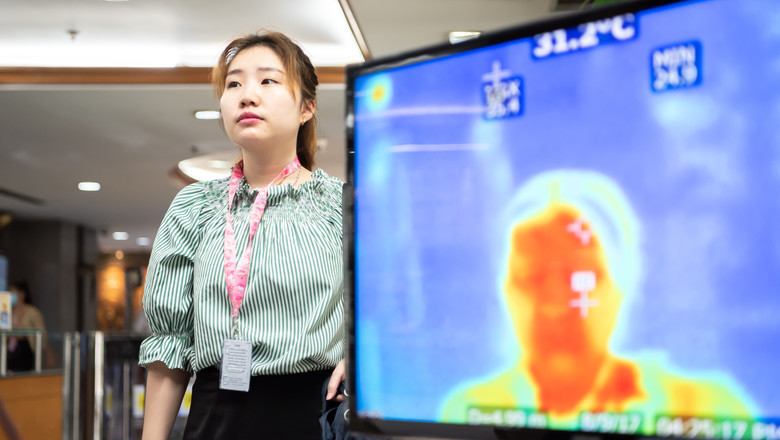
Businesses should include thermal cameras
in their post-coronavirus plan

Thermal cameras have been a vital part of the strategy to limit the spread of Covid-19 in Asia, writes Eric Chan, Executive Director of G4S Security Systems Hong Kong.
28 Aug 2020
If someone had told me this time last year that thermal cameras would be one of the most important pieces of technology for a business’s success in 2020, I would have laughed at them. In Hong Kong, CCTV and access control, I would have said, have been far more necessary and effective in enhancing an organisation’s security and protecting assets, infrastructure and people.
Yet 2020 has been a year of unprecedented hindsight. It’s time for some foresight. There are three reasons why governments, businesses and retailers should consider investing in thermal technology.
Temperature checks reduce risk to staff and visitors
Hong Kong is one of the most densely populated places in the world. Every square kilometre is home to more than 6,500 people
Yet, since December 2019, there have been just 4,500 confirmed cases and 72 deaths from Covid-19 in Hong Kong, a city with a population of over 7.4 million. Compare this to New York (population 8.4m), which has seen 235,000 cases and 23,600 deaths, and London (population 8.9m), which has seen 35,700 cases and 6,800 deaths.
There are many reasons for these differences, of course, but I would like to suggest that one is Hong Kong’s willingness to adopt technological solutions - like thermal cameras.
Since the first case of the virus emerged in Hong Kong in late January, our phones have been ringing. Businesses have been asking about the technology to halt the spread. Every time an alarm goes off and a person is turned away from your business due to a fever is a potential super-spreader event avoided. This protects your staff, your visitors, and your business’s reputation.
Automatic thermal cameras are safer and more cost-effective than a person with a handheld temperature gun
When I’m out in Hong Kong, there are now many places that check your temperature as you enter. However, when I see a man or woman holding a handheld thermometer, it makes me feel uncomfortable. Usually, they cannot take your temperature without standing extremely close to you - an avoidable risk for them, and an avoidable risk for me. Even with masks, standing at least a metre away is an important element in stopping the spread of the virus.
Coronavirus moves fast. It moves silently. Often, you cannot identify who caused the outbreak. But the technology is rapidly catching up with the threat. Cameras can now even measure the temperatures of people in vehicles.
Likewise, the cost of thermal cameras is extremely competitive. At least in Hong Kong, it is cheaper to install cameras than hire a person to measure people as they enter. We have recently been installing cameras for a major fast food chain in Hong Kong. They are not intrusive, they look professional, and add an atmosphere of objective care.

Thermal cameras demonstrate a public and reassuring commitment to health and safety
The primary role of thermal cameras is undoubtedly to improve public health. But they have another, important impact.
A business employing effective thermal imaging technology is a business that is publicly demonstrating that it is well-organised and committed to the health and wellbeing of its staff and others.
The cameras, which can test dozens of people at a time, fill shoppers, travellers or workers with confidence that the business is taking the threat seriously.
Cameras are one measure among many, but they are not an insignificant one. As the world grows more aware of the risks and ways to prevent the spread of Covid-19, cameras will be seen as a more vital string in the bow of businesses, governments and other organisations.
If deployed with appropriate social distancing, mask wearing and hand washing, thermal cameras can be a powerful part of the arsenal in the fight to control coronavirus.
